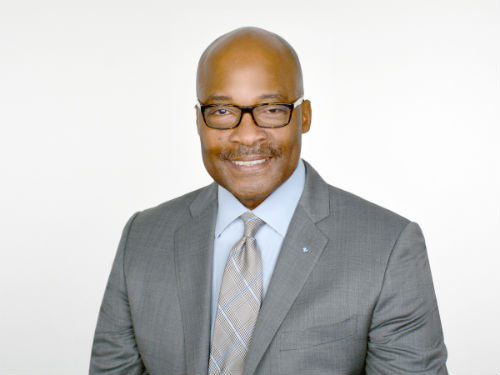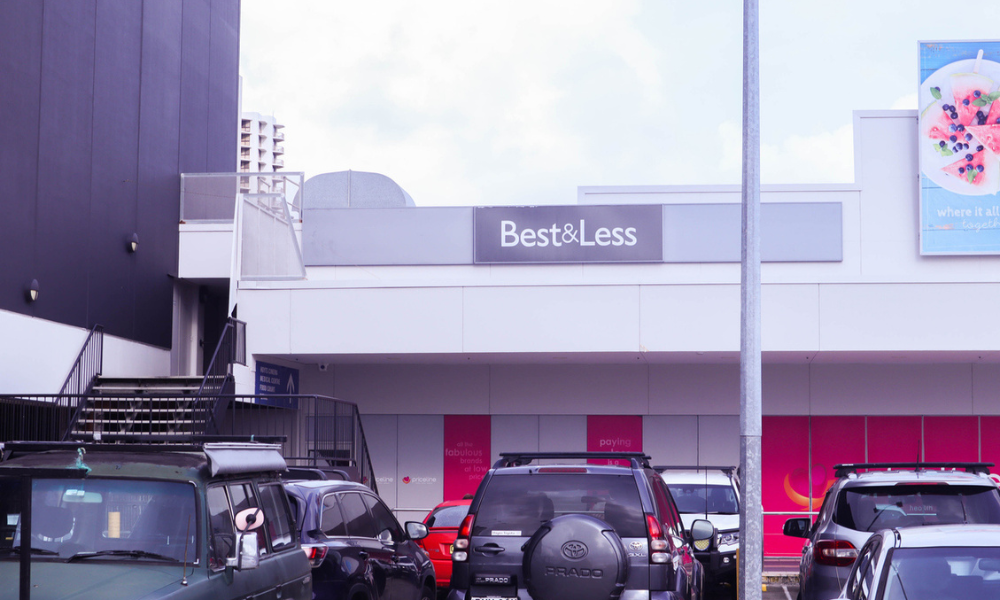The head of HR for global insurer Zurich speaks to HRD about the science of leadership

HRD: Can you outline your current role at Zurich?
Brian Little: I’m head of HR for Zurich North America. I’m responsible for the full cycle of HR here – talent acquisition, talent management, L&D, compensation, benefits, performance management. I also look after our HR business partners and we also have a shared services team that is split between Farmers Management Services and us. I have around 130 team members and we support approximately 9,500 employees.
HRD: You’ve had a passion for leadership development and more general L&D during your career. What sparked that interest?
BL: My first job in HR was in a large utility company. I was in operations initially and then moved into HR in a career development centre and then an assessment centre. One thing I found very interesting early in my career was that in operations my chances of working with senior executives was pretty low. I could talk to my supervisor, my manager’s manager, but very few executives. When I started to work in the career development centre and career assessment centre I found my clients were primarily executives and that changed my view in terms of the type of exposure I wanted to have and where I could have influence. I really learned to enjoy HR and started to realise how important leadership was to the success of the overall company. Poor leadership and decision-making can destroy shareholder value and employee morale. What I found was that those organisations that had leadership as a core component of their DNA did better than those that didn’t. I felt I could contribute to that.
HRD: Why do you think leadership development initiatives often fail to deliver the expected return on investment?
BL: A couple of things. One is you really must ground your leadership development strategy in the heart of your business and really understand where we’re trying to go with it. Where we’ve made some strides at Zurich is by thinking about where we really want to be in the next five to 10 years. The industry is changing quite a bit and we sat down a few years ago and said, “we need to make some changes”. We needed to prepare our organisation for the future. The type of people who work in our company will be different, but also the environment that we’ll be operating in will be different. Our leadership program needed to be attuned to that.
The other big reason why a lot of these programs fail is they’re too complex. Too many bells and whistles are added onto programs which sometimes are oversold by consultants. They must have very clear, actionable development plans and be able to reinforce the behaviours you want to see changed or at least replicated in the organisation. A lot of programs in the marketplace today look pretty on a piece of paper, but if you can’t execute them it doesn’t really matter.
HRD: Tell us about the Zurich Oxygen Initiative.
BL: In 2009, when I started at Zurich, I worked with [current CEO] Mike Foley and undertook some research. We figured out something we called the Development Curve. This relates to the time and effort a person needs to be in a role in relation to the investment we need to make in them as a company. We did that for every employee.
However, we also realised our managers weren’t ready to take that kind of research and information and really take action on it. So we embarked upon something that became known as World Class Manager. World Class Manager was essentially designed to take those concepts we’d discovered and then apply those in such a way that every manager could be successful. To do that we split manager and leader behaviours into two buckets – because while we still want people to be great leaders, we also need them to at least be good, solid managers of people as well.
We created a required course for all managers to go through, which was called ‘The Successful Manager at Zurich’. What that program focused on was core management behaviours. It laid the foundations for us to build what we now call today Oxygen, which focuses on the eight behaviours that great managers show. The intention was to make our managers more flexible, more empowered, able to take greater accountability and ultimately drive higher performance. An example of that is we flattened the organisational structure down and increased spans of control significantly.
We couldn’t have done any of that without providing a lot of professional development in return. So we did that through World Class Manager, The Successful Manager at Zurich, and eventually Oxygen. We’re pretty proud of what we’ve been able to accomplish.
HRD: Would you say you’ve had great leaders in your career?
BL: I have. I’ve been lucky. I had a chance to work with great leaders at a company called Amoco, which is now part of BP. Some of the smartest people in the world worked at that organisation – PhD geoscientists and engineers who were exceptionally bright.
I worked at HSBC with Sir John Bond, who was with the company for over 40 years. He was one of the finest leaders in financial services history. He’s an incredible man with an incredible story who started his career as a teller and worked his way up to lead one of the largest banks. The stories about John are fairly legendary – people talk about times they met him in the elevator and those kinds of chance meetings. I learned from him that being kind and caring but also being a great businessman was possible and not mutually exclusive.
I work for a great CEO today – Mike Foley. Mike is really a visionary, being able to take relatively complex processes and put those into real-life work scenarios over a period of time. Mike can take pretty far-out ideas and make them a reality, but he’s always driven by the immediate challenges his business and its people are up against. He’s been great to work with.
HRD: You’ve spent time as a consultant. How has that experience helped in your HR career?
BL: For me it was a great opportunity to understand what lots of great companies are doing and discover what made them successful. I learned that there’s no one leadership style that works for everybody. I also learned that different organisations require different types of leadership styles at different times. Understanding that made me a better business person because as a consultant you have to quickly digest the organisation’s operating model and what’s important to them, and establish how you can actually help them. It’s a good experience for anyone who works in HR. They can take that knowledge with them internally.
Related stories:
Brian Little: I’m head of HR for Zurich North America. I’m responsible for the full cycle of HR here – talent acquisition, talent management, L&D, compensation, benefits, performance management. I also look after our HR business partners and we also have a shared services team that is split between Farmers Management Services and us. I have around 130 team members and we support approximately 9,500 employees.
HRD: You’ve had a passion for leadership development and more general L&D during your career. What sparked that interest?
BL: My first job in HR was in a large utility company. I was in operations initially and then moved into HR in a career development centre and then an assessment centre. One thing I found very interesting early in my career was that in operations my chances of working with senior executives was pretty low. I could talk to my supervisor, my manager’s manager, but very few executives. When I started to work in the career development centre and career assessment centre I found my clients were primarily executives and that changed my view in terms of the type of exposure I wanted to have and where I could have influence. I really learned to enjoy HR and started to realise how important leadership was to the success of the overall company. Poor leadership and decision-making can destroy shareholder value and employee morale. What I found was that those organisations that had leadership as a core component of their DNA did better than those that didn’t. I felt I could contribute to that.
HRD: Why do you think leadership development initiatives often fail to deliver the expected return on investment?
BL: A couple of things. One is you really must ground your leadership development strategy in the heart of your business and really understand where we’re trying to go with it. Where we’ve made some strides at Zurich is by thinking about where we really want to be in the next five to 10 years. The industry is changing quite a bit and we sat down a few years ago and said, “we need to make some changes”. We needed to prepare our organisation for the future. The type of people who work in our company will be different, but also the environment that we’ll be operating in will be different. Our leadership program needed to be attuned to that.
The other big reason why a lot of these programs fail is they’re too complex. Too many bells and whistles are added onto programs which sometimes are oversold by consultants. They must have very clear, actionable development plans and be able to reinforce the behaviours you want to see changed or at least replicated in the organisation. A lot of programs in the marketplace today look pretty on a piece of paper, but if you can’t execute them it doesn’t really matter.
HRD: Tell us about the Zurich Oxygen Initiative.
BL: In 2009, when I started at Zurich, I worked with [current CEO] Mike Foley and undertook some research. We figured out something we called the Development Curve. This relates to the time and effort a person needs to be in a role in relation to the investment we need to make in them as a company. We did that for every employee.
However, we also realised our managers weren’t ready to take that kind of research and information and really take action on it. So we embarked upon something that became known as World Class Manager. World Class Manager was essentially designed to take those concepts we’d discovered and then apply those in such a way that every manager could be successful. To do that we split manager and leader behaviours into two buckets – because while we still want people to be great leaders, we also need them to at least be good, solid managers of people as well.
We created a required course for all managers to go through, which was called ‘The Successful Manager at Zurich’. What that program focused on was core management behaviours. It laid the foundations for us to build what we now call today Oxygen, which focuses on the eight behaviours that great managers show. The intention was to make our managers more flexible, more empowered, able to take greater accountability and ultimately drive higher performance. An example of that is we flattened the organisational structure down and increased spans of control significantly.
We couldn’t have done any of that without providing a lot of professional development in return. So we did that through World Class Manager, The Successful Manager at Zurich, and eventually Oxygen. We’re pretty proud of what we’ve been able to accomplish.
HRD: Would you say you’ve had great leaders in your career?
BL: I have. I’ve been lucky. I had a chance to work with great leaders at a company called Amoco, which is now part of BP. Some of the smartest people in the world worked at that organisation – PhD geoscientists and engineers who were exceptionally bright.
I worked at HSBC with Sir John Bond, who was with the company for over 40 years. He was one of the finest leaders in financial services history. He’s an incredible man with an incredible story who started his career as a teller and worked his way up to lead one of the largest banks. The stories about John are fairly legendary – people talk about times they met him in the elevator and those kinds of chance meetings. I learned from him that being kind and caring but also being a great businessman was possible and not mutually exclusive.
I work for a great CEO today – Mike Foley. Mike is really a visionary, being able to take relatively complex processes and put those into real-life work scenarios over a period of time. Mike can take pretty far-out ideas and make them a reality, but he’s always driven by the immediate challenges his business and its people are up against. He’s been great to work with.
HRD: You’ve spent time as a consultant. How has that experience helped in your HR career?
BL: For me it was a great opportunity to understand what lots of great companies are doing and discover what made them successful. I learned that there’s no one leadership style that works for everybody. I also learned that different organisations require different types of leadership styles at different times. Understanding that made me a better business person because as a consultant you have to quickly digest the organisation’s operating model and what’s important to them, and establish how you can actually help them. It’s a good experience for anyone who works in HR. They can take that knowledge with them internally.
Related stories:





